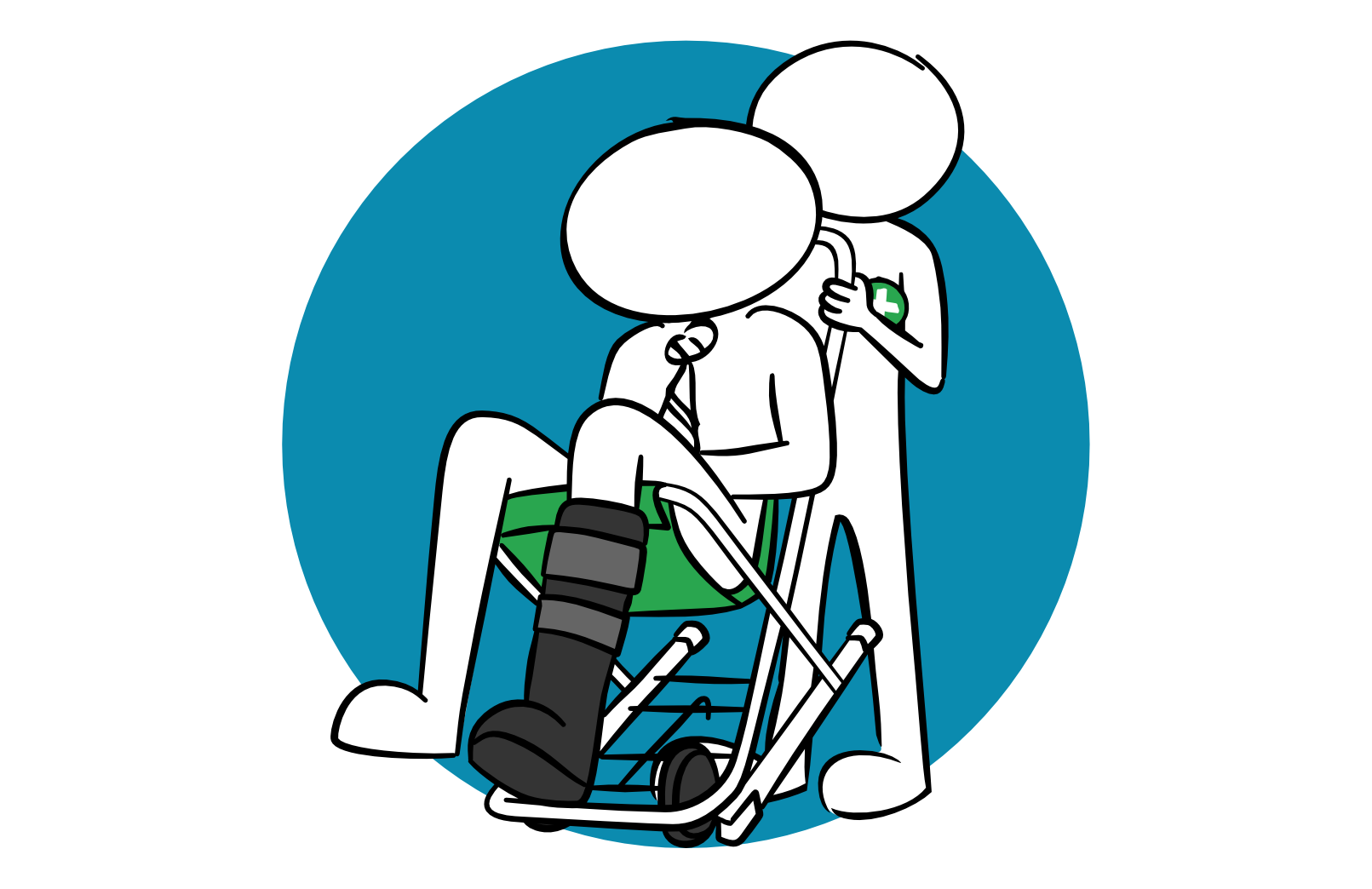World Heart Day – Why Heart Health and CPR Training Matter
Posted on: 25th September 2025
World Heart Day is marked every year on 29th September. This global awareness day is dedicated to encouraging people to look after their heart health and to take steps to prevent cardiovascular disease.
The theme for this year’s campaign is “Never Miss a Beat” – a reminder of how important it is to understand our hearts, spot the signs of cardiac emergencies, and to know what to do in an emergency.
At Help First Aid Training, we’re all about giving people the confidence to act quickly in emergency situations. With that in mind, read on for important facts about the heart, cardiac arrest, and the vital role of CPR and defibrillators.
A heart attack and a cardiac arrest are not the same thing.
A heart attack happens when the blood supply to the heart muscle is cut off. One of the main causes of this is a clot in one of the coronary arteries. The heart will still be pumping blood around the body during a heart attack, and the person will usually be conscious and breathing.
A heart attack can lead to a cardiac arrest, as the risk of ventricular defibrillation is higher – this is when the heart fibrillates, or quivers, rather than pumps.
A cardiac arrest occurs when the heart’s electrical system stops working, meaning it stops pumping blood effectively. This will lead to the person losing consciousness and their breathing becoming erratic or stopping altogether.
Fact - Around 1.4 million people alive in the UK today have survived a heart attack.
The importance of early defibrillation
Every year in the UK, there are more than 40,000 out-of-hospital cardiac arrests. These can happen at home, at work, or out in the community – and survival rates are low without quick action.
Early CPR and defibrillation can more than double the chances of survival. That’s why defibrillators (AEDs) are so important in public spaces and workplaces.
How do I find out where my nearest defibrillator is located?
Help First Aid Training recommends;
At work - Find out if your workplace has a defibrilator onsite. If you do have one check out where it’s kept and who is responsible for maintaining it. See our blog; https://helpfirstaidtraining.co.uk/news/when-did-you-last-check-your-defibrillator
In the community - Keep an eye out when you’re out and about; you’ll often see defibrillators in shops, leisure centres, schools, and even outside community buildings.
In an emergency - Call 999 and the emergency call responder will direct you to the nearest defibrillator in your location.
CPR Knowledge in the UK – Shocking Statistics
Despite the importance of CPR, a study by the British Heart Foundation revealed that around 23 million people in the UK do not know how to perform CPR. Even more worrying, 6 in 10 households have no one who knows how to step in to deliver this life-saving skill in an emergency.
Learn CPR and Defibrillator Use with Help First Aid Training
At Help First Aid Training, we make sure every learner leaves feeling confident in their ability to perform CPR and use a defibrillator. These skills are taught in:
Emergency First Aid at Work
First Aid at Work
Requalification First Aid at Work
Paediatric First Aid
We also run onsite group training for nurseries, schools, colleges, and businesses, including Basic Life Support and Defibrillator Competent User courses.
We run regular open courses at our Shildon Business Centre in County Durham, and we can also deliver onsite training at your location. We cover Darlington to Durham, Redcar to Richmond, Newton Aycliffe to North Shields and everywhere in between.
Email: info@helpfirstaidtraining.co.uk
Call us: 01388 417303
Website: www.helpfirstaidtraining.co.uk
Statistic source – www.bhf.org.uk
Related News
What are my Responsibilities as a First Aider?
You’ve completed your first aid course – congratulations! But now you’re a qualified first aider…what does that actually mean in practice?
Supporting Positive Wellbeing in the Workplace
Mental Health Awareness Week is a powerful reminder of the importance of emotional wellbeing – not just in our personal lives, but also in our working lives.
How Many First Aiders Do I Need In My Business?
As an employer, you understand that it is your responsibility to ensure that health and safety measures are in place for your employees. But how many first aiders to do...



